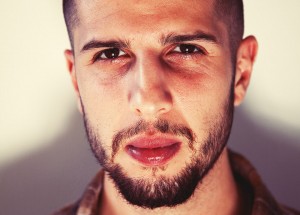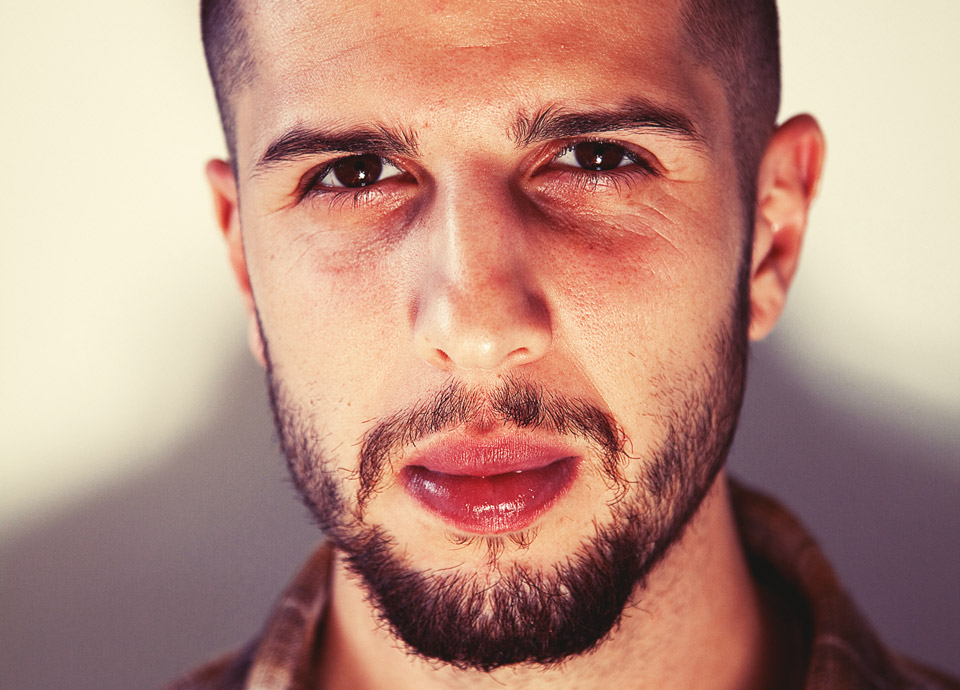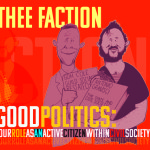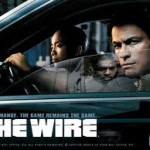
If you haven’t heard of Anthony Anaxagorou I urge you to take a few moments and read this. He is a poet and writer from North London who started writing at the age of 14. In 2002, at the age of 17, he entered and won the London Mayors Poetry Slam with his poem Anthropos. Following this he made a number of television and radio appearances where he read out various poems, including a live recital on BBC London Radio and a television interview. In 2009 he published his first book Card Not Accepted, which stands as a collection of essays, short stories and poetry all reflecting moments from his life and an overall commentary of western living. Much of his work consists around the spiritual search for inner peace and the detachment from various societal ideals, however a huge section of his work encompasses themes that deal with politics, racism, history and philosophy. He writes from his own personal experiences in a style that is honest and compelling, this is what has so far won him the admiration and affection of many.In May 2009 the poem “Himself” taken from the book Card Not Accepted, was chosen by MOBO award winning hip hop artist Akala to be read out on BBC News Night Review as part of the arts and poetry weekend.
He has also attended workshops set up by the Hip-Hop Shakespeare Company and the Royal Shakespeare Company who collectively came together to discuss more innovative and captivating ways Shakespeare could be taught in schools across Britain.
June 2010 saw the release of his fourth publication. A digital ebook entitled The Lost Definition of Hope which featured a number of poems written over a space of four months. A portion of the books price was given to Médecins Sans Frontières, an independent organisation who deal with getting aid out to countries caught in heavy conflict. In July 2011 he wrote a spoken word piece called If I Told You which begins by questioning the validity and accuracy of historical documentation especially that regarding Africa. The poem then begins to explore current affairs, propaganda systems, the prison industry complex as well as the more existential issues such as ego, love, insecurity and hope. In the short space of a week the poem received over 2,000 views on YouTube as well as being featured at the British Urban Film Festival where it received a standing ovation. He has spoken about poetry at universities and colleges that include Oxford University, Nottingham University, Bradford University and Tower Hamlets College.
His latest collection of poetry ‘A Difficult Place to Be Human’ from which ‘If I Told You’ comes from, was published in 2012 and currently he is working on new projects. I spoke to him about his work, his inspirations and the future. His most recent poem ‘It Will Come to You’ a collaboration with Karim Kamar – is now on You Tube. His next show – Out-Spoken is at The Star of Kings Pub in Kings Cross on the 21st September.
————————————————————————————————————————
It’s always interesting when a young person picks up a pen and starts writing poetry. You were only 14. What made you put that pen to paper, instead of another artistic pursuit?
I think that at such a young age I wasn’t entirely aware of alternative ways that I could express myself with. I came from a home that wasn’t overly literary or artistic so again that would have added to my unfamiliarity, but there was always music playing, in some room on a radio so I would always find myself paying special attention to song lyrics and melodies. One day I came home from school upset and picked up a pen and paper. I wrote a little couplet down and thought this is cool, nobody will ever understand this apart from me. I felt powerful in a way, hiding behind the codification that poetry can offer, so I wrote another and another. That night I went to bed thinking that felt right, it felt somewhat natural and effortless. I compared it to playing the piano which I found far more challenging so I decided to keep writing in code.
You have already self-published 8 collections of poetry. That is quite a body of work in really a relatively short space of time, how do you keep up a momentum like that?
The collections happen by accident if I’m honest. I don’t actually set out to write anything, I just go through the days waiting for poems to find me then I try capturing them in the form they appear in my head. Ideas are always floating around it’s just important that I try create a body of work that has range and is also ambitious stylistically.
Not only do you address political issue but intensely intimate topics that confront the stereotype of what a man might be considered in today’s society. Is this something you address on purpose to break down taboos, or is it innate to you?
I’ve always said to myself that I’m not interested in writing the perfect poem, for its more about writing something that is truthful to what I’m feeling at any specific moment. I meet a lot of people and I see how the denial of feelings can lead to bigger issues further down the line. I don’t think I’ve ever been afraid to talk about my feelings, if anything I know that someone else is most likely going through something similar so that knowledge alone gives me the confidence to share.
Not only are you a poet, writer and performer…but also a teacher. What do you think poetry can bring people, particularly young people?
Peace. Poetry for me has bought me immense peace in times when my whole life has found its way into chaos. Through the teaching I try and show young people that they are able to build a sanctum in this special world they create for themselves. It becomes a retreat, a place we disappear to when we need to organise and make sense of our reality. I also feel that language is an incredible tool for empowerment. If people know how to express themselves without the use of violence or anger (or channel that emotion into something more productive) then they will live a life of better quality. Poetry and language can offer so much, the problem we face today is that young people are made to feel that it’s just not for them.
What do you find inspirational in the next generation of young poets/spoken word artists?
Young people of today are fortunate in the sense that they have access to various online platforms that display a wide range of poetic styles. When I was young I didn’t know anything about performance poetry or spoken word so I felt that if someone didn’t rap then they were doomed to always stay poets of the page. I’m seeing more young people now experiment with spoken word, breaking out of the hip-hop meter to explore more alternative modes of communication and story-telling. Just the fact that they understand this stuff doesn’t have to always rhyme is a massive step in rethinking poetry.
Where do you take your inspiration from these days?
Form things that happen I guess. I’ve always believed that art is just a regard for things that happen, an alternative way of organising the external world. Poetry is a bit like a starry night sky, we all know that there are stars up there and that the sky is enormous and heavy, but it takes a specific kind of person to put those stars into an economical language or order that can appeal to both our verbal and nonverbal senses.
‘If I Told You’ is probably one of the most powerful poems I have ever heard. What was the background to this poem, why did you feel the need to write it? Are our children being taught a false history?
It’s one of these pieces that came out of the blue. I went to sleep one night with the usual internal din of my thoughts. I was thinking about things that so many of us will die never knowing, so many empirical truths that get lost in the torrent of historical and cultural amnesia. One thing led to another then I had the idea of writing a piece that could inculcate without trying to pontificate. I thought to make a suggestion. The phrase what If I told you popped into my head then within a few minutes I saw the whole poem work itself out. A cyclic, interdisciplinary piece that started at the start with anthropological references workings its way through into philosophy, racism, oppression, economics, propaganda and finally back into the universal ‘self’.
I always find myself confessing that it’s not my best piece of writing. I have poems that I feel are far more superior poetically but it is accessible and relevant while offering a repetitive hook that people can grab on to while journeying through the poem’s narrative. History is always a self-serving tool so of course much of what we’re told today is either horribly incorrect or cunningly manipulated to suit a certain agenda. I think that people from all across the social strata can benefit from taking a little time to learn about civilisations outside of their own, especially when the west owes so much of its advancement to Asia, Africa and the Middle East.
What spoken word artists or just people in general have inspired you in your life? I know your grandmother plays a large part.
Inspiration can stem from having a conversation with a 2 year old to watching a 90 year old go to make a cup of tea. It’s really hard to say precisely what engenders ideas; all I know is that I have to be in tune with the pulse of poetry. I look for it. I go out in the morning and I hunt for the instances that I can turn into poetry, similar to the way a photographer would look for the perfect snapshot that has the potential to encapsulate a moment. I’m still figuring out how it all works but what I do know is once you open yourself up to poetry a flood of material will pour in, the poets job at that point is to filter out the banal from the profound.
Your current book ‘A Difficult Place To Be Human’ is out at the moment but are you working on any new projects/pieces at the moment?
I am. I’m currently writing a play that is set to be put on in September (if all goes to plan) and I’m also in the process of signing a publishing deal for a collection of short stories that is due to be released next year.
The best way to experience spoken word is live I feel, where can people see you perform in the coming months?
I usually post dates on twitter and Facebook so that would be the best place to get that information. I also run a night called Out-Spoken which happens once a month in Kings Cross at a pub called the Star Of Kings. The next show is September 21st so if people want to experience a range of spoken word and music then I strongly suggest coming down.
http://www.youtube.com/user/donis1rap
https://twitter.com/Anthony1983
https://www.facebook.com/pages/Anthony-Anaxagorou/137633294052?fref=ts




